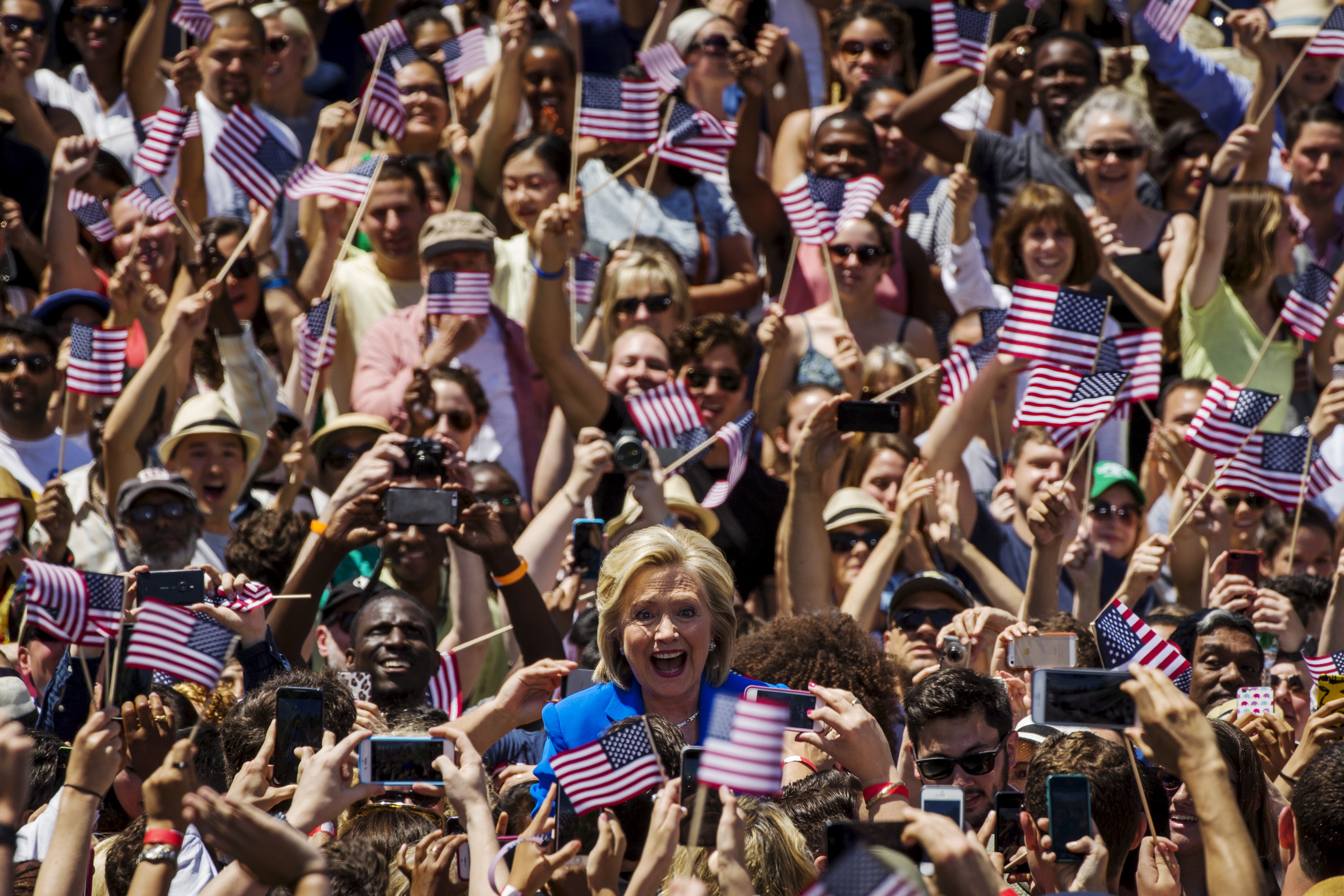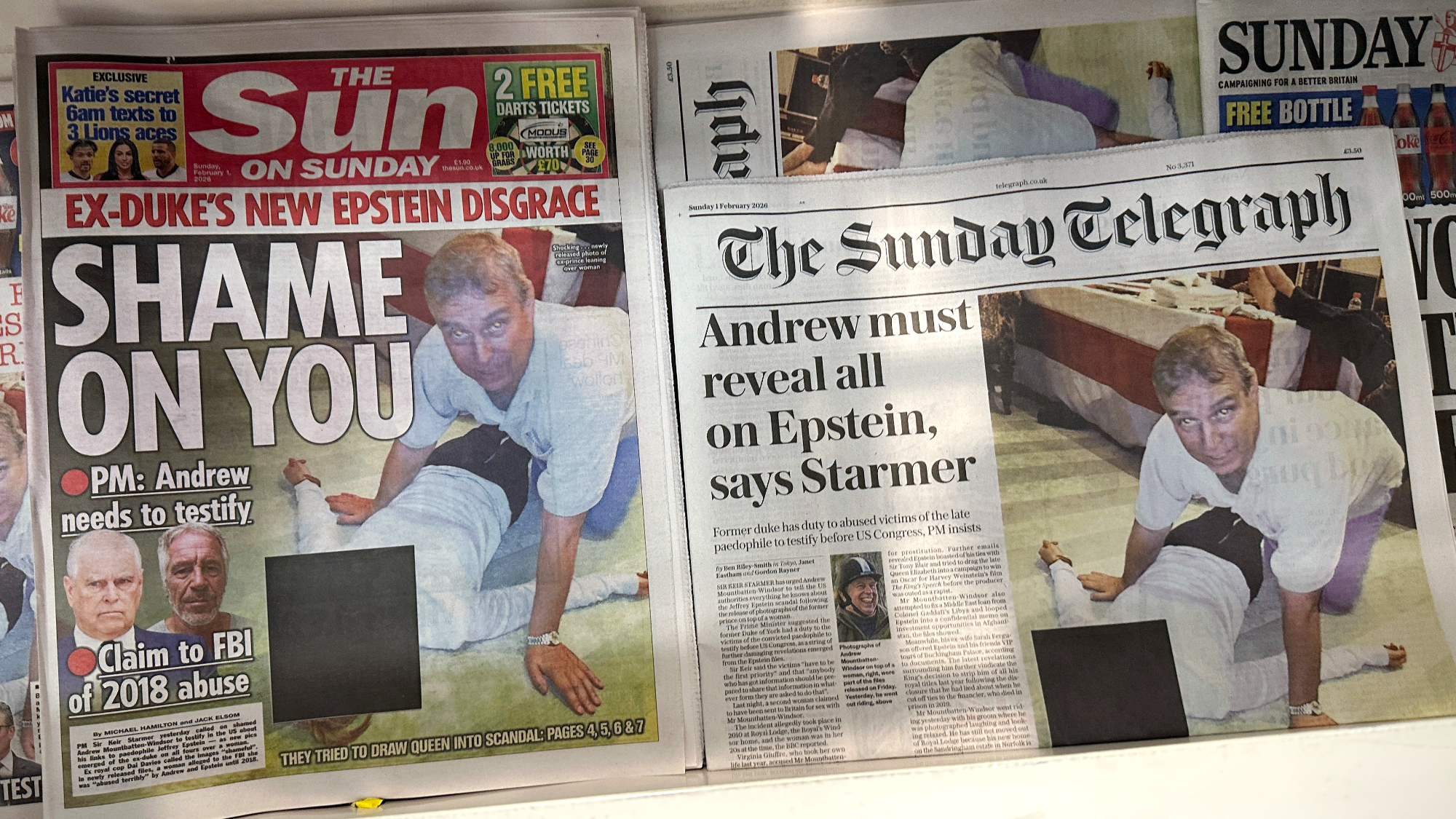Why Hillary Clinton needs to be twice as good
When people are rooting for you to fail and doing their darndest to make sure you do, just being good isn't nearly enough


"You have to be twice as good to succeed." It's something countless African-American parents have told their children, as the TV show Scandal brought to white people's attention (if they didn't hear it somewhere else, perhaps from the Condoleezza Rice biography Twice As Good). The system is designed for you to fail, and people are rooting for you to fail and doing their darndest to make sure you do. Just being good isn't nearly enough.
And it's a message I wish somebody had given Hillary Clinton eight years or so ago. Nobody ever doubted whether you were smart and capable. Yes, you've mastered all the policy details. Yes, you're possessed of an almost superhuman capacity to be knocked down and keep moving forward. But that isn't enough. When it comes to obeying every last rule (even the ones plenty of people ignore), to dotting the i's and crossing the t's, to figuring out what might look bad even if your intentions are good, to not giving your enemies even the slightest gap in your armor to slide in a sword, you have to be twice as good as anyone else. And she hasn't been.
When FBI Director James Comey announced the findings of the bureau's investigation into Clinton's use of a private email server while secretary of state, it was clear that Clinton had screwed up in a significant and not entirely unpredictable way. "Although we did not find clear evidence that Secretary Clinton or her colleagues intended to violate laws governing the handling of classified information," he said, "there is evidence that they were extremely careless in their handling of very sensitive, highly classified information." There's also no evidence that national security was compromised, although it's possible. What we know for sure is that Clinton's political fortunes were severely compromised.
The Week
Escape your echo chamber. Get the facts behind the news, plus analysis from multiple perspectives.

Sign up for The Week's Free Newsletters
From our morning news briefing to a weekly Good News Newsletter, get the best of The Week delivered directly to your inbox.
From our morning news briefing to a weekly Good News Newsletter, get the best of The Week delivered directly to your inbox.
Hindsight is 20-20, of course. But it would be fascinating to go back in time and eavesdrop on the conversations between Clinton and her aides when the question of setting up that server arose. Though she has said she didn't want to bother carrying two devices around (the State Department forbade non-state email accounts to be accessible from department-issued BlackBerrys), I doubt that was more than a minor consideration; the far more likely reason was that she was trying to evade the relentless pursuit of what in 1998 she called the "vast right-wing conspiracy." She knew that they'd be all up in her business from the moment she took office, submitting FOIA requests and suing her and trying to find anything they could to use against her, not just because their loathing for her knows no limits, but so they could stop her from winning the presidency in the future.
And she was right about that. Just look at how far Republicans went to investigate Benghazi: eight separate probes, one after the other in the hope that maybe the next one would finally prove that she had committed some ghastly act of malfeasance. None of them did, but the last did discover her emails.
When that idea was raised in 2008 or 2009, there were reasons why it might have seemed perfectly fine. The State Department's own email system is constantly under attack from people trying to hack it, so it wouldn't necessarily be more secure than her own. Across the government (just like in the private sector), people's adherence to electronic security protocols is lax. Her predecessor Colin Powell used private email for work, and dozens of Bush administration officials used an RNC email server with minimal consequence.
But if she had understood that she needed to be twice as good, she — or somebody working for her — would have said, "Hold on, let's think hard about whether this is really a good idea." And when career staffers in the State Department raised concerns about her email system, they wouldn't have been told that there was nothing to worry about (as the department's inspector general reported), because there was.
A free daily email with the biggest news stories of the day – and the best features from TheWeek.com
No one ever accused Hillary Clinton of not working hard enough, or not knowing enough. But one has to wonder whether she absorbed the right lesson from all the scandals of her husband's presidency. The easy and self-serving lesson is that no matter what she does, Republicans will claim that she's done something criminal and the media will parrot those claims. That lesson is largely true. But it's also true that nearly every one of those scandals, even the most absurd, began when she or Bill (or both) skated a little too close to the line. No, they didn't commit crimes, and they sure didn't preside over a terrifying criminal conspiracy that spanned the globe and murdered its enemies, as their more unhinged critics believed. The scandals were always ridiculously overblown. But the ball usually got rolling because they did something they thought would be no big deal, until it was.
And it won't end if and when she becomes president; Republicans will probably begin drafting articles of impeachment the day after her inauguration. So when it comes to giving them a target, she has to be twice as good — and she has to make sure the people who work for her are, too.
She owes that to everyone, but more than anyone else she owes it to Democrats, because she and Bill have put them through an awful lot. They were like mountain guides saying, "Come with us on this hike. First we're going to wade through a river of crap, and then we'll have to cross a ravine on a rickety bridge that'll make you think you're about to plunge to your death, but in the end we'll reach a place with a really good view. Just trust us." And so Democrats did. They nominated the guy with the history of extramarital affairs, who (surprise, surprise) had an extramarital affair while he was president. They've defended the Clintons again and again, even when it didn't feel good to do it.
Even if they chose Barack Obama in 2008, Democrats have always been there for Clinton, to have her back and help her fend off the slings and arrows coming from the other side. So she owes them nothing less than being twice as good as everyone else. It may not be fair that that's what she has to do. But she can't escape it.
Paul Waldman is a senior writer with The American Prospect magazine and a blogger for The Washington Post. His writing has appeared in dozens of newspapers, magazines, and web sites, and he is the author or co-author of four books on media and politics.
-
 New Epstein files dump strains denials of elites
New Epstein files dump strains denials of elitesSpeed Read Fallout from the files has mostly occurred outside the US
-
 Will Peter Mandelson and Andrew testify to US Congress?
Will Peter Mandelson and Andrew testify to US Congress?Today's Big Question Could political pressure overcome legal obstacles and force either man to give evidence over their relationship with Jeffrey Epstein?
-
 Moltbook: the AI social media platform with no humans allowed
Moltbook: the AI social media platform with no humans allowedThe Explainer From ‘gripes’ about human programmers to creating new religions, the new AI-only network could bring us closer to the point of ‘singularity’
-
 The billionaires’ wealth tax: a catastrophe for California?
The billionaires’ wealth tax: a catastrophe for California?Talking Point Peter Thiel and Larry Page preparing to change state residency
-
 Bari Weiss’ ‘60 Minutes’ scandal is about more than one report
Bari Weiss’ ‘60 Minutes’ scandal is about more than one reportIN THE SPOTLIGHT By blocking an approved segment on a controversial prison holding US deportees in El Salvador, the editor-in-chief of CBS News has become the main story
-
 Has Zohran Mamdani shown the Democrats how to win again?
Has Zohran Mamdani shown the Democrats how to win again?Today’s Big Question New York City mayoral election touted as victory for left-wing populists but moderate centrist wins elsewhere present more complex path for Democratic Party
-
 Millions turn out for anti-Trump ‘No Kings’ rallies
Millions turn out for anti-Trump ‘No Kings’ ralliesSpeed Read An estimated 7 million people participated, 2 million more than at the first ‘No Kings’ protest in June
-
 Ghislaine Maxwell: angling for a Trump pardon
Ghislaine Maxwell: angling for a Trump pardonTalking Point Convicted sex trafficker's testimony could shed new light on president's links to Jeffrey Epstein
-
 The last words and final moments of 40 presidents
The last words and final moments of 40 presidentsThe Explainer Some are eloquent quotes worthy of the holders of the highest office in the nation, and others... aren't
-
 The JFK files: the truth at last?
The JFK files: the truth at last?In The Spotlight More than 64,000 previously classified documents relating the 1963 assassination of John F. Kennedy have been released by the Trump administration
-
 'Seriously, not literally': how should the world take Donald Trump?
'Seriously, not literally': how should the world take Donald Trump?Today's big question White House rhetoric and reality look likely to become increasingly blurred
